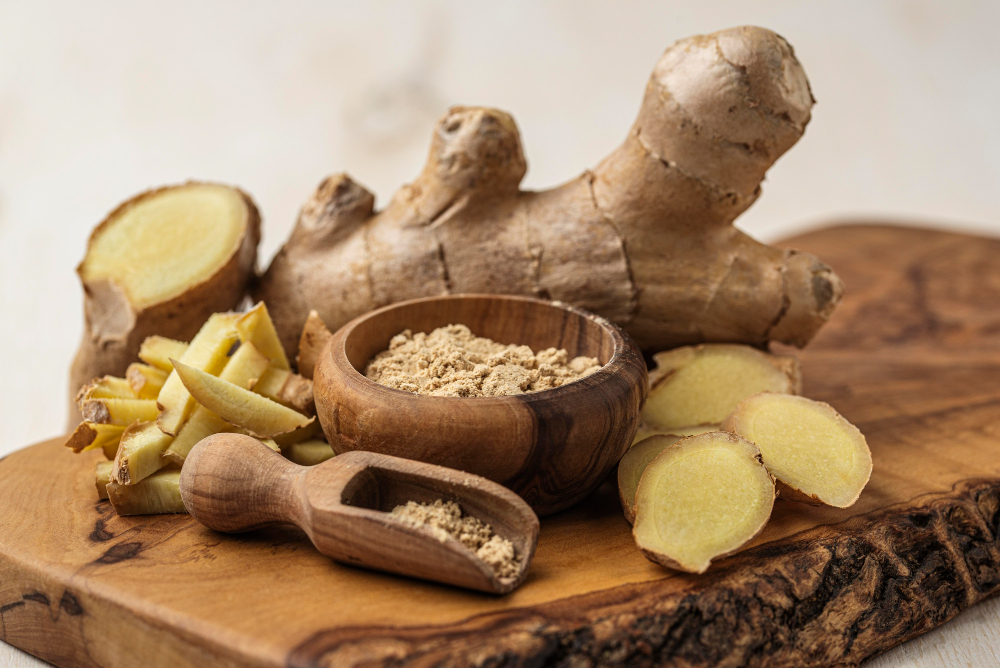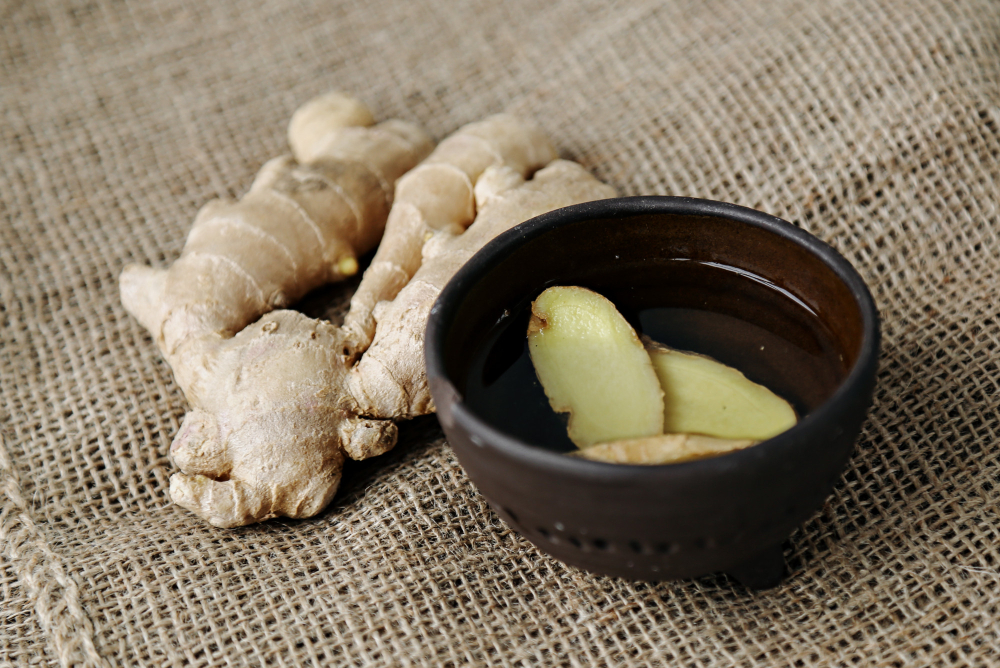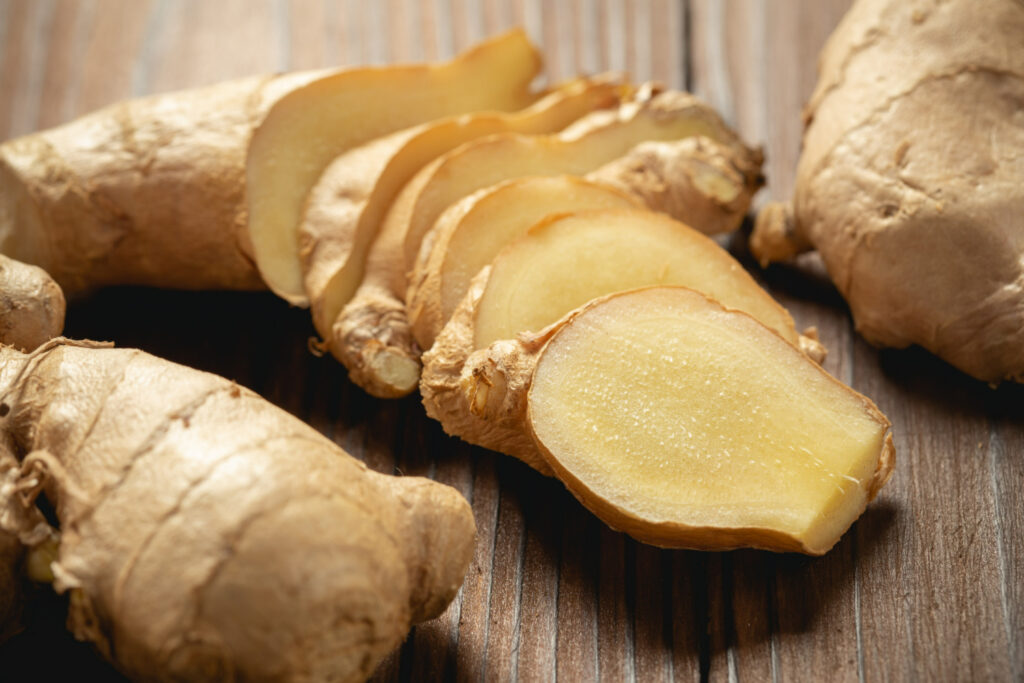
Ginger,
a common spice, is an indispensable ingredient in Chinese kitchens.Not only does it remove unpleasant odors and enhance flavor, but it is also a must-have for hotpots and stir-fry dishes.
However, in the eyes of a Traditional Chinese Medicine (TCM) practitioner, ginger’s role goes far beyond a mere seasoning. As a plant with both culinary and medicinal properties, it holds a significant place in TCM theory and is endowed with various therapeutic effects.
Time to have ginger is also important !Check out the other article – Does eating ginger at night equates to poison ?
Ginger in the Eyes of Ordinary People

For most people, ginger is closely tied to daily life and cooking:
- Flavor Enhancer: Adding a few slices of ginger while stir-frying can neutralize unwanted odors and boost flavor. When cooking fish or stewing meat, ginger enhances the overall taste.
- Daily Warmth: In the cold winter months, many enjoy a cup of hot ginger tea to warm their stomachs and dispel the chill.
- Simple Folk Remedies: During the early stages of a cold, boiling ginger slices with brown sugar is often considered a “magic cure” for alleviating cold symptoms caused by wind-cold invasion.
However, ordinary people often only focus on the “seasoning” and “cold-dispelling” aspects of ginger, and may not have a deep understanding of its role and value in traditional Chinese medicine theory.
Ginger in the Eyes of TCM Practitioners

In TCM, ginger is not just a food ingredient but also a potent medicinal herb that plays an important role in balancing the body and harmonizing Yin and Yang.
Basic Attributes of Ginger:
- Nature and Flavor: Ginger is warm in nature and pungent in taste. It enters the lung, spleen, and stomach meridians. Its warming and pungent qualities help dispel cold, promote sweating, warm the lungs, and relieve coughs.
- Varieties of Ginger: Ginger in TCM is classified into three main types: fresh ginger, dried ginger, and roasted ginger (炮姜). Their processing methods affect their medicinal effects:
~ Fresh Ginger:
Focuses on dispelling cold and relieving external syndromes. It is often used for wind-cold colds or vomiting caused by cold.
~Dried Ginger:
Has stronger warming properties, primarily used to warm the middle and dispel cold, as well as revive yang energy. It is suitable for more severe cold syndromes.
~Roasted Ginger:
After processing, roasted ginger mainly warms the middle and stops bleeding, especially for symptoms like cold-induced abdominal pain or cold-related bleeding.
Everyday Health Applications of Ginger :

- Ginger Foot Bath: Boiling water with fresh ginger for a foot bath can dispel cold, promote blood circulation, and relieve cold hands and feet.
- Ginger and Jujube Tea: A decoction of ginger and red dates nourishes qi and blood, warms the stomach, and is especially helpful for menstrual care.
- Ginger Compress: In TCM, applying fresh ginger slices externally is often used to relieve joint pain or cold-induced abdominal discomfort.
Aside from fresh and dried ginger, other parts of ginger, such as ginger peel and ginger juice, also have unique uses.
- Ginger Peel: Cool in nature, it excels at promoting urination and reducing swelling. It is often used to treat edema and difficulty in urination.
- Ginger Juice: Known for its potent warming and dispersing effects, ginger juice can be applied externally to treat headaches caused by wind-cold or taken internally to dissolve phlegm and relieve cough.

Conclusion
To ordinary people, ginger is a condiment and a daily “cold-repelling weapon”.For TCM practitioners, however, it is a valuable remedy for warming the middle, dispelling cold, and balancing the body’s Yin and Yang. By leveraging ginger’s medicinal properties appropriately, this humble plant can significantly enhance our health. However, it is worth noting that while ginger is beneficial, it is not suitable for everyone. For instance, those with Yin deficiency, internal heat, or excessive heat in their constitution should use it cautiously. Whether used in food or as medicine, ginger should be tailored to individual constitutions and specific conditions to truly become a health-promoting assistant.



